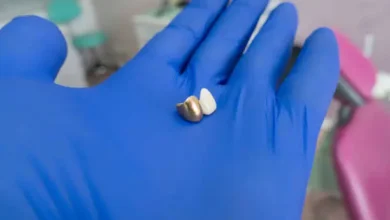Taking Charge of Your Recovery: What to Do After a Personal Injury

Your life might be turned upside down by a personal injury, and you’ll have to cope with the psychological, financial, and physical consequences. Whether it’s from a car accident, a slip and fall, or another unanticipated catastrophe, knowing what to do may make a big difference in how quickly you heal and how your case is resolved in court. Read on for valuable insights into how you can safeguard your health and rights immediately following a personal injury.
Immediate Actions After an Injury: Preserving Your Rights
When an injury occurs, the priority is to ensure your safety and well-being. However, it’s also crucial to act promptly to preserve your rights. Assess your health, seek immediate medical attention if required, and notify the authorities to make an official report. Document everything about the incident through photographs and gathering witness statements. These initial steps help set the premise for your case, providing crucial evidence that a personal injury attorney in Madison may later need. The documentation helps establish the facts surrounding the injury, which is fundamental to seeking redress through the legal system.
Medical Attention: The Cornerstone of Personal Injury Recovery
Do not sideline medical care after suffering an injury. Even if the injuries seem negligible, consulting with healthcare professionals immediately following the incident is paramount. Some internal injuries or conditions may not manifest symptoms immediately and can only be detected through a professional medical examination. Furthermore, securing a detailed medical record from the outset creates a well-documented connection between the incident and your injuries, which is an irrefutable part of pursuing a personal injury claim.
Documenting the Incident: Gathering and Preserving Evidence
Had a serious slip and fall accident? Or suffered any other personal injury? If so, you’ll to need prioritise gathering and preserving any evidence which may support your claim. This is because the evidence collected from the scene of the accident, alongside medical records, can play an indispensable role in establishing the facts of the case. It includes taking photos of the location, noting environmental conditions, and securely preserving any physical evidence. Collect contact details from witnesses who can corroborate your account of the incident. Equally important is acquiring any relevant surveillance footage. These materials are the building blocks for reconstructing the events that led to the injury and are influential when negotiations or litigation arise.
Understanding the Role of Personal Injury Law
The complexity of personal injury law underscores the need for comprehensive knowledge of your rights and the various ways to seek redress. Personal injury law aims to restore the injured party to their pre-incident state as much as possible through financial compensation for losses incurred. It covers a broad spectrum of injury contexts, verifying the responsible party’s negligence and ensuring the victim’s suffering is not in vain.
A Personal Injury Claim’s Potential Impact Factors
State laws govern personal injury claims, and various factors can influence the success of your claim. It’s critical to act quickly since the statute of limitations imposes a stringent deadline on filing claims, which might endanger your ability to pursue legal action if you are unaware. Also, familiarizing oneself with the particulars of state comparative negligence rules is beneficial. These rules could diminish or increase your claim’s worth based on an assessment of fault.
The Future After a Personal Injury: Rehabilitation and Adaptation
The road to recovery after a personal injury is seldom linear and often requires long-term rehabilitation plans. These include physical therapy, counseling, and changing your residential or work environment to accommodate new limitations. This period also calls for emotional resilience, and support from family, friends, and support groups can be tremendously beneficial. Your willingness to adapt and your support network directly influence your rehabilitation journey and ultimate recovery.



